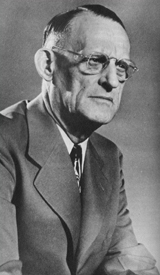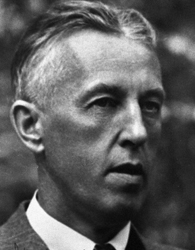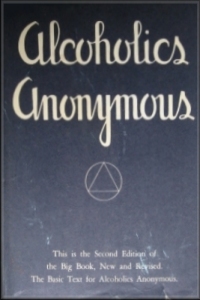Related Research Articles

Alcoholics Anonymous (AA) is a global, peer-led mutual-aid fellowship dedicated to abstinence-based recovery from alcoholism through its spiritually inclined twelve-step program. AA’s Twelve Traditions, besides stressing anonymity and the lack of a governing hierarchy, establish AA as free to all, non-promotional, non-professional, unaffiliated, and non-denominational, as well as apolitical. In 2021 AA reported a presence in approximately 180 countries with nearly two million members—73% in the United States and Canada.

Alcoholism is the continued drinking of alcohol despite it causing problems. Some definitions require evidence of dependence and withdrawal. Problematic use of alcohol has been mentioned in the earliest historical records. The World Health Organization (WHO) estimated there were 283 million people with alcohol use disorders worldwide as of 2016. The term alcoholism was first coined in 1852, but alcoholism and alcoholic are sometimes considered stigmatizing and to discourage seeking treatment, so diagnostic terms such as alcohol use disorder or alcohol dependence are often used instead in a clinical context.
Twelve-step programs are international mutual aid programs supporting recovery from substance addictions, behavioral addictions and compulsions. Developed in the 1930s, the first twelve-step program, Alcoholics Anonymous (AA), founded by Bill Wilson and Bob Smith, aided its membership to overcome alcoholism. Since that time dozens of other organizations have been derived from AA's approach to address problems as varied as drug addiction, compulsive gambling, sex, and overeating. All twelve-step programs utilize a version of AA's suggested twelve steps first published in the 1939 book Alcoholics Anonymous: The Story of How More Than One Hundred Men Have Recovered from Alcoholism.

Robert Holbrook Smith, also known as Dr. Bob, was an American physician and surgeon who cofounded Alcoholics Anonymous with Bill Wilson.

William Griffith Wilson, also known as Bill Wilson or Bill W., was the co-founder of Alcoholics Anonymous (AA) with Bob Smith.

Sobriety is the condition of not having any effects from alcohol and other drugs. Sobriety is also considered to be the natural state of a human being at birth. A person in a state of sobriety is considered sober. Organizations of the temperance movement have encouraged sobriety as being normative in society.
Dry drunk is an expression coined by the founder of Alcoholics Anonymous that describes an alcoholic who no longer drinks but otherwise maintains the same behavior patterns of an alcoholic.

Neurotics Anonymous (N/A), founded in 1964, is a twelve-step program for recovery from mental and emotional illness. To avoid confusion with Narcotics Anonymous (NA), Neurotics Anonymous is abbreviated N/A or NAIL.
Al-Anon Family Groups, founded in 1951, is an international mutual aid organization for people who have been impacted by another person's alcoholism. In the organization's own words, Al-Anon is a "worldwide fellowship that offers a program of recovery for the families and friends of alcoholics, whether or not the alcoholic recognizes the existence of an alcohol-related problem or seeks help." Alateen "is part of the Al-Anon fellowship designed for the younger relatives and friends of alcoholics through the teen years".
Drug addiction recovery groups are voluntary associations of people who share a common desire to overcome their drug addiction. Different groups use different methods, ranging from completely secular to explicitly spiritual. Some programs may advocate a reduction in the use of drugs rather than outright abstention. One survey of members found active involvement in any addiction recovery group correlates with higher chances of maintaining sobriety. Although there is not a difference in whether group or individual therapy is better for the patient, studies show that any therapy increases positive outcomes for patients with substance use disorders. The survey found group participation increased when the individual members' beliefs matched those of their primary support group. Analysis of the survey results found a significant positive correlation between the religiosity of members and their participation in twelve-step programs and to a lesser level in non-religious SMART Recovery groups, the correlation factor being three times smaller for SMART Recovery than for twelve-step addiction recovery groups. Religiosity was inversely related to participation in Secular Organizations for Sobriety.

Alcoholics Anonymous (AA) is a global fellowship founded in 1935 by Bill Wilson and Robert Smith, and has since grown to be worldwide.
Joseph Charles Martin, SS was an American Catholic priest, recovered alcoholic and renowned speaker and educator on the issues of alcoholism and drug addiction. He was a member of the Sulpicians.
SMART Recovery is an international community of peer support groups that help people recover from addictive and problematic behaviors, using a self-empowering and evidence-informed program. SMART stands for Self-Management and Recovery Training. The SMART approach is secular and research-based. SMART has a global reach with a presence established in more than 30 countries. SMART Recovery is effective with a range of addictive and problematic behaviors.

LifeRing Secular Recovery is a secular, non-profit organization providing peer-run addiction recovery groups. The organization provides support and assistance to people seeking to recover from alcohol and drug addiction, and also assists partners, family members and friends of addicts or alcoholics. It is an abstinence-based recovery program with three fundamental principles: sobriety, secularity and self-empowerment. The motto of LifeRing is "empower your sober self."
Moderation Management (MM) is a secular non-profit organization providing peer-run support groups for anyone who would like to reduce their alcohol consumption. MM was founded in 1994 to create an alternative to Alcoholics Anonymous and similar addiction recovery groups for non-dependent problem drinkers who do not necessarily want to stop drinking, but moderate their amount of alcohol consumed to reduce its detrimental consequences.
Charles Barnes Towns (1862–1947) conducted experimentation with cures for alcoholism and drug addiction, and helped draft drug control legislation in the United States during the early 20th century.

Secular Organizations for Sobriety (SOS), also known as Save Our Selves, is a non-profit network of autonomous addiction recovery groups. The program stresses the need to place the highest priority on sobriety and uses mutual support to assist members in achieving this goal. The Suggested Guidelines for Sobriety emphasize rational decision-making and are not religious or spiritual in nature. SOS represents an alternative to the spiritually based addiction recovery programs such as Alcoholics Anonymous (AA). SOS members may also attend AA meetings, but SOS does not view spirituality or surrendering to a Higher Power as being necessary to maintain abstinence.
Women for Sobriety (WFS) is a non-profit secular addiction recovery group for women with addiction problems. WFS was created by sociologist Jean Kirkpatrick in 1976 as an alternative to twelve-step addiction recovery groups like Alcoholics Anonymous (AA). As of 1998 there were more than 200 WFS groups worldwide. Only women are allowed to attend the organization's meetings as the groups focus specifically on women's issues. WFS is not a radical feminist, anti-male, or anti-AA organization.

Alcoholics Anonymous: The Story of How More Than One Hundred Men Have Recovered from Alcoholism is a 1939 basic text, describing how to seek recovery from alcoholism. The Big Book was written by William G. "Bill W." Wilson, one of the founders of Alcoholics Anonymous, with the help of various editors. The composition process was not collaborative other than editing. Bill wrote all of the chapters except for "To Employers" which was written by Bill's right-hand man, Hank Parkhurst. Parkhurst influenced the more liberal notions of "God as we understand him" and "your own conception of God." Drafts of sections were sent back and forth between Bill W.'s group in New York and Robert Holbrook Smith, the other AA founder, in Akron, Ohio. Dr. Bob made no major changes. It is the predecessor of the seminal "twelve-step method" widely used to treat many addictions, from alcoholism, heroin addiction and marijuana addiction to overeating, sex addiction and gambling addiction, with a strong spiritual and social emphasis. It is one of the best-selling books of all time, having sold 30 million copies. In 2011, Time magazine placed the book on its list of the 100 best and most influential books written in English since 1923, the year in which the magazine was first published. In 2012, the Library of Congress designated it as one of 88 "Books that Shaped America."

A sobriety coin is a token given to Alcoholics Anonymous or other twelve-step program members representing the amount of time the member has remained sober. It is traditionally a medallion the size of a poker chip, 34 mm (1.34 in) (standard) or 39 mm (1.5 in) in diameter. In other twelve-step programs it is to mark time abstaining from whatever the recipient has committed to renounce. There is no official AA medallion or chip; they are used in AA culture but not officially conference-approved, and the AA logo has not been granted for use on medallions.
References
- ↑ WHITAKER, HOLLY (2021). QUIT LIKE A WOMAN: the radical choice to not drink in a culture obsessed with alcohol. NEW YORK: DIAL PRESS DELACORTE. ISBN 978-1-9848-2507-0. OCLC 1191212650.
- ↑ GRACE, ANNIE (2019). THIS NAKED MIND. Place of publication not identified: HQ. ISBN 978-0-00-829346-8. OCLC 1023090576.
- ↑ Gray, Catherine (2018). The unexpected joy of being sober journal: your intentions, your journey, your joy. ISBN 978-1-78325-308-1. OCLC 1137227025.
- ↑ POOLEY, CLARE (2018). SOBER DIARIES: how one woman stopped drinking and started living. Place of publication not identified: CORONET Books. ISBN 978-1-4736-6190-5. OCLC 1017604130.
- ↑ Warrington, Ruby (2020). Sober curious: the blissful sleep, greater focus, and deep connection awaiting us all on the other side of alcohol. ISBN 978-0-06-286904-3. OCLC 1201533308.
- ↑ McKowen, Laura; hoopla digital (2020). We are the luckiest: the surprising magic of a sober life. ISBN 978-1-60868-655-1. OCLC 1164850326.
- ↑ Ramage, Andy (2017). The 28 day alcohol-free challenge. London: Bluebird. ISBN 978-1-5098-5725-8. OCLC 1016701972.
- ↑ Nutt, David J (2020). Drink?: the new science of alcohol + your health. ISBN 978-0-306-92384-5. OCLC 1164818549.
- ↑ Dann, Lotta (2021). The wine o'clock myth: the truth you need to know about women & alcohol. ISBN 978-1-988547-22-0. OCLC 1230541307.
- ↑ ADAMS, TONY (2018). SOBER: football. my story. my life. Place of publication not identified: SIMON & SCHUSTER LTD. ISBN 978-1-4711-5675-5. OCLC 1013819506.
- ↑ Brand, Russell (2017). Recovery: freedom from our addictions. ISBN 978-1-4272-8958-2. OCLC 1004851885.
- ↑ Chapple, Simon (2020). How to Quit Alcohol in 50 Days: Stop Drinking and Find Freedom. ISBN 978-1-5293-5758-5. OCLC 1238026382.
- ↑ Carr, Allen (2016). The easy way to control alcohol. London: Arcturus. ISBN 978-1-84837-465-2. OCLC 951704351.
- ↑ Gooch, Millie (2021). The sober girl society handbook: an empowering guide to living hangover-free. ISBN 978-1-78763-412-1. OCLC 1222803614.
- ↑ Smith, Lisa F (2016). Girl walks out of a bar: a memoir. ISBN 978-1-59079-321-3. OCLC 1194632840.
- ↑ Alcoholics Anonymous (2018). Alcoholics Anonymous: the story of how many thousands of men and women have recovered from alcoholism. ISBN 978-1-7268-0362-5. OCLC 1101181100.
- ↑ Vale, Jason (2011). Kick the drink-- easily!. Bancyfelin: Crown House. ISBN 978-1-84590-390-9. OCLC 706789955.
- ↑ Sheinbaum, Hilary (2020). The dry challenge: how to lose the booze for dry January, sober October, and any other alcohol-free month. ISBN 978-0-06-293770-4. OCLC 1151531462.
- ↑ Ludwig, Arnold M (1989). Understanding the alcoholic's mind: the nature of craving and how to control it. New York: Oxford University Press. ISBN 978-0-19-505918-2. OCLC 45747647.
- ↑ Mathews-Larson, Joan (1997). Seven weeks to sobriety: the proven program to fight alcoholism through nutrition. New York: Fawcett Columbine. ISBN 978-0-449-00259-9. OCLC 37949521.
- ↑ Coombs, Robert H (2001). Addiction recovery tools: a practitioner's handbook. London: SAGE. ISBN 978-0-7619-2066-3. OCLC 47900811.
- ↑ Colclough, Beauchamp (1995). Tomorrow I'll be different: the effective way to stop drinking. Woodstock, N.Y.: Overlook Press. ISBN 978-0-87951-629-1. OCLC 34530669.